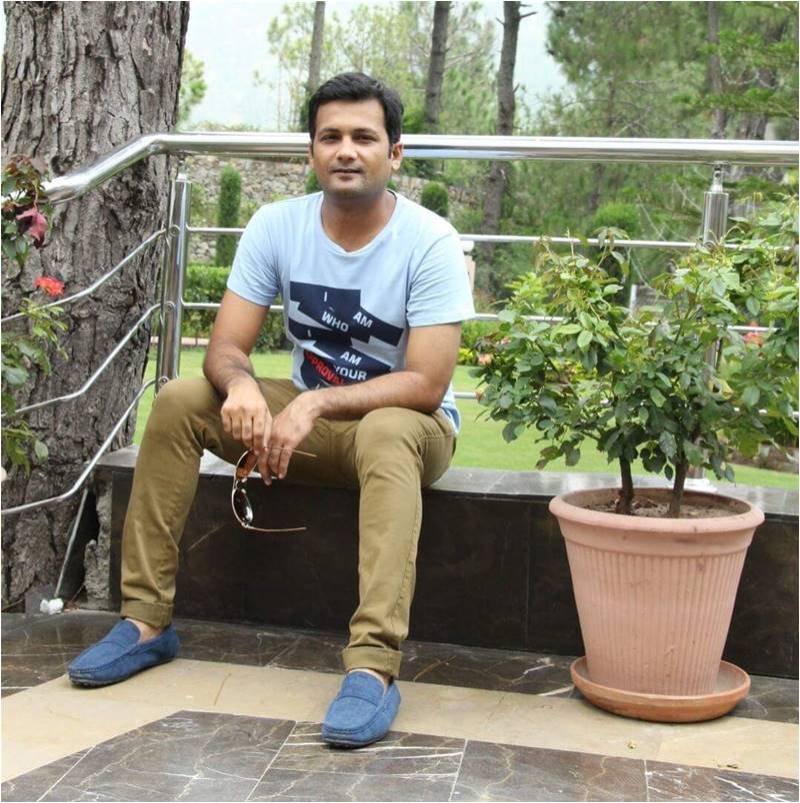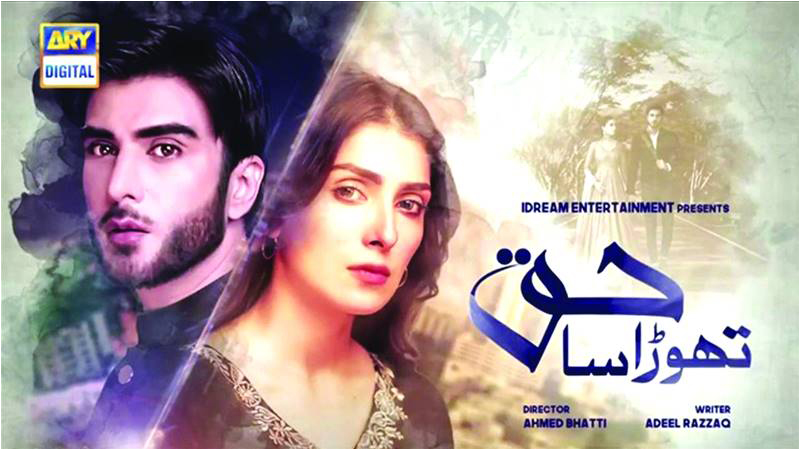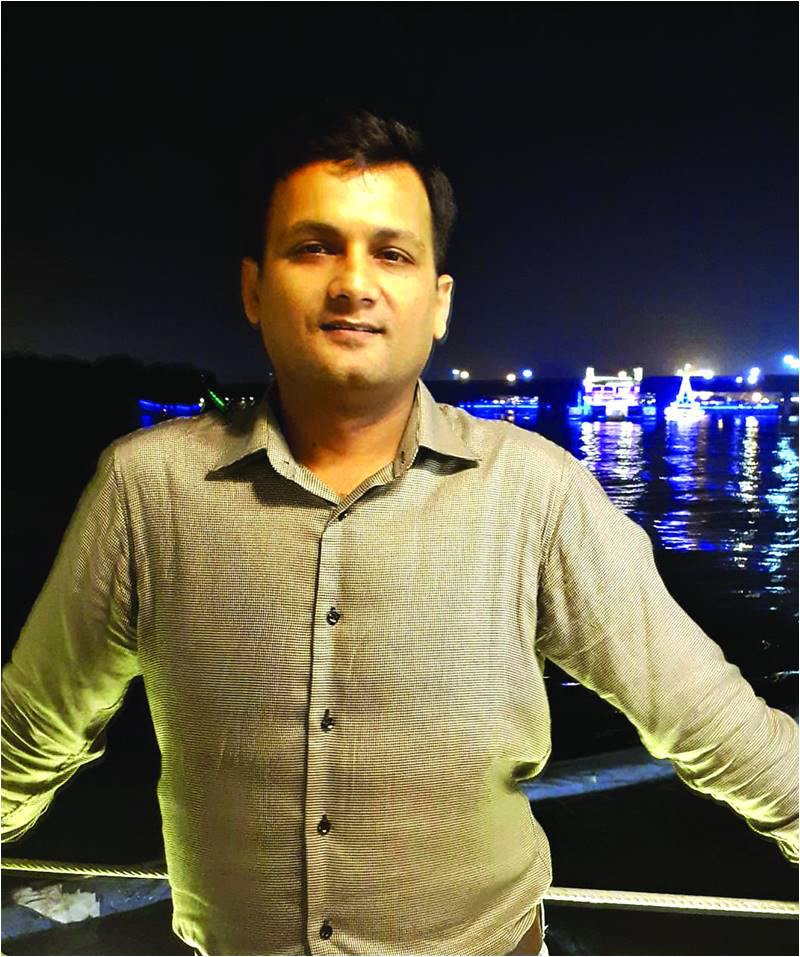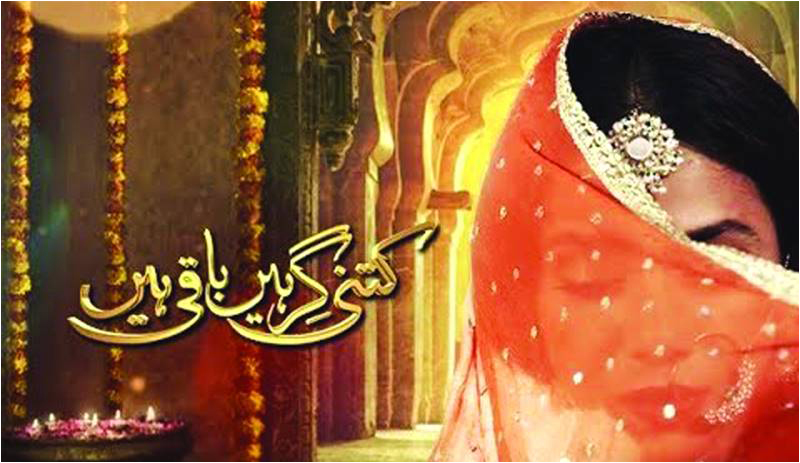
An in-depth perusal of canonical literature, a daily dose of quality documentaries and a thirst for international film and television renders Adeel Razzaq one of those very few screenwriters from contemporary times in whose works lies true variety. What he imbibes from global literature seeps into his dramatic works, and the viewers are always given something novel to feed on, be it a romantic thriller like Muqaddas, a magical realist drama like Deewana or a story based on rigid feudal practices like Pukaar.
Adeel Razzaq’s most courageous step has been Chewing Gum, a long play based on same-sex relations for which he received a lot of backlash from the society’s conservative segments. However, he did not take the ensuing negative criticism as a setback and continued to write, eventually holding to his credit ARY Digital’s blockbuster serial, Thora Sa Haq.
The Friday Times caught up with the writer and asked him a few questions.
Muhammad Ali: How did you enter the drama industry?
Adeel Razzaq: I started writing dramas as a child, the medium, however, being radio. It was when I was in the 7th grade that I visited Radio Pakistan’s office standing near my house. The children over there were preparing for an episode of a show called Bachon Ki Duniya, watching which I realized that it won’t be difficult for me to write something similar to what they were enacting. So, I wrote a script and gave it to the producer, who accepted it for the very next episode of the show. A week after that, the children were performing my story. As a result, I became a regular writer for radio, eventually getting associated with Apna Karachi FM 107 for which I also wrote a soap. I continued with similar activities in college and university as well by becoming a member of “Bazm e Talba”. Along-with a few members of the club, I then formed a group seeing the rise of such creative groups of youngsters back in those times. We would prepare plays and perform them at various festivals, some of them being held at educational institutions. Around 2005, in an inauguration ceremony of a new auditorium at the Karachi Arts Council, I also acted in a play titled Aadhi Baat written by Bano Qudsia and directed by Kamal Ahmad Rizvi. That made me realize that I love acting as well – something I couldn’t pursue because my studies and struggles as a young man didn’t allow me to. The same circumstances then inclined me to find a permanent job for myself and I entered an advertising agency as a creative writer. However, a few months of working there made me realize that my real passion is drama. Seeing that I had starting missing dramatic activities, a colleague advised me to write an episode for Kitni Girhein Baqi Hain, the first season of which was running on HUM TV in those days. I wrote a script and took it to the MD Productions, where Saira Ghulam Nabi was present. As she knew me from the days of my theatrical work, she warmly welcomed me and read my script. Satisfied with the story, she forwarded it to Angeline Malik who was producing that season. Malik also admired it and sent it on screen. For the same season of Kitni Girhein Baqi Hain, I wrote almost ten proceeding episodes.
M.A.: You have written thrillers, fantasies, romances and taboos. Which genre attracts you the most?
A.R.: I want to write modern drama; the drama that deconstructs old and ingrained conservative values. Regardless of the genre, my attempt would be at making people step out of meta-narratives. Unfortunately, Pakistani screenwriters aren’t given such opportunities and the stories have to center around cousin marriages at the end of the day.
M.A.: Do you believe that “Thora Sa Haq” gave you your breakthrough?
A.R.: Since Muqaddas written by me was nominated in the Lux Style Awards, I consider that project of mine as a breakthrough. Considering this, Thora Sa Haq would be my second commercial success. But yes, Thora Sa Haq gave me all one needs to have for attaining popularity from the masses, like the heartthrob young actors in its cast such as Ayeza Khan and Imran Abbas. From a subjective point of view, I also take Deewana as my breakthrough, but at a very personal level. Although it wasn’t commercially successful at all, it won me the favour of many senior writers who had asked me to pen it down, including Noor-ul-Huda Shah. It was so long and so different a project that I wasn’t sure if I would be able to pull it off or not. Fortunately, I succeeded in garnering all the veteran writers’ appreciation, who had also given me the chance to write Deewana the way I liked. There was no interference and no commercial demands. I enjoyed it the most, be it in terms of storytelling or in terms of developing characters.

M.A.: Your long play Chewing Gum based on two female lovers received a lot of backlash. Do you think that more such plays are needed to inculcate tolerance and acceptance in the society or will such efforts be always criticized?
A.R.: They will always be criticized. Pakistanis are in no way ready to accept more plays like Chewing Gum. We, as a society, are not progressing at all. Ideologies that are different from our own are not acceptable to us, and unique sexual orientations fall under the same category. However, if Pakistanis prolifically make web-series, then such stories might be acceptable, considering that you have to reach out to people around the globe while working for the web. On television, it isn’t possible at all to work on scripts revolving around LGBT people.
M.A.: Which Urdu drama writers have acted as inspirations for you?
A.R.: Haseena Moin’s characterization has always inspired me. It was in the 1980s and ‘90s that her female protagonists would climb trees and work actively in offices. These days, even if you show a woman working in an office, she is confused and dumb to such an extent that every male character misuses her naivete.


M.A.: You, along-with many other top-notch writers, wrote a serial for BOL Entertainment out of much love and care, but the channel didn’t turn out to be a success. Does that make you disappointed?
A.R.: Yes, I wrote Mohabbat Karna Manah Hai for that channel. BOL Entertainment’s failure was a disappointment for every person. Writers had been hired for that channel and were promised secure, permanent jobs. They remained quite upset for a long time because they were left in a predicament when the channel failed because of its wrong decisions and uncertain policies.
M.A.: If you were to adapt a novel into a drama, which one would it be?
A.R.: Well, there are quite a few novels which I would love to turn into television serials; Jamila Hashmi’s Dasht e Soos, Zahida Hina’s Na Junoon Raha Na Pari Rahi and Qurutulain Haider’s Qaar e Jahan Daraaz. But, of course, none of these would be commercial serials.
M.A.: What are your upcoming projects?
A.R.: There are quite a few in pipeline, but until and unless their screening is finalized, I cannot name them. One which I have written for MD Productions is being shot. Another one has been written and is lying with Six Sigma Productions, but no work has begun on its execution yet. I am also writing some serials for Geo and ARY.
Muhammad Ali is an M.Phil scholar and a former visiting lecturer at GCU, Lahore. His interest lies in indigenous literature, the specific research areas being the Partition novel, Environmental Literature emerging from South Asia and classical and contemporary Pakistani television drama. His research on Sahira Kazmi’s “Zaib un Nisa” which was a part of his graduation thesis has been presented on various platforms including Olomopolo Media.
This interview is a part of a series of interviews in which various Pakistani celebrities including writers, actors and directors will be asked questions regarding their professional work.
The writer can be reached at m.ali_aquarius85@yahoo.com
Adeel Razzaq’s most courageous step has been Chewing Gum, a long play based on same-sex relations for which he received a lot of backlash from the society’s conservative segments. However, he did not take the ensuing negative criticism as a setback and continued to write, eventually holding to his credit ARY Digital’s blockbuster serial, Thora Sa Haq.
The Friday Times caught up with the writer and asked him a few questions.
***
Muhammad Ali: How did you enter the drama industry?
Adeel Razzaq: I started writing dramas as a child, the medium, however, being radio. It was when I was in the 7th grade that I visited Radio Pakistan’s office standing near my house. The children over there were preparing for an episode of a show called Bachon Ki Duniya, watching which I realized that it won’t be difficult for me to write something similar to what they were enacting. So, I wrote a script and gave it to the producer, who accepted it for the very next episode of the show. A week after that, the children were performing my story. As a result, I became a regular writer for radio, eventually getting associated with Apna Karachi FM 107 for which I also wrote a soap. I continued with similar activities in college and university as well by becoming a member of “Bazm e Talba”. Along-with a few members of the club, I then formed a group seeing the rise of such creative groups of youngsters back in those times. We would prepare plays and perform them at various festivals, some of them being held at educational institutions. Around 2005, in an inauguration ceremony of a new auditorium at the Karachi Arts Council, I also acted in a play titled Aadhi Baat written by Bano Qudsia and directed by Kamal Ahmad Rizvi. That made me realize that I love acting as well – something I couldn’t pursue because my studies and struggles as a young man didn’t allow me to. The same circumstances then inclined me to find a permanent job for myself and I entered an advertising agency as a creative writer. However, a few months of working there made me realize that my real passion is drama. Seeing that I had starting missing dramatic activities, a colleague advised me to write an episode for Kitni Girhein Baqi Hain, the first season of which was running on HUM TV in those days. I wrote a script and took it to the MD Productions, where Saira Ghulam Nabi was present. As she knew me from the days of my theatrical work, she warmly welcomed me and read my script. Satisfied with the story, she forwarded it to Angeline Malik who was producing that season. Malik also admired it and sent it on screen. For the same season of Kitni Girhein Baqi Hain, I wrote almost ten proceeding episodes.
“If Pakistanis prolifically make web-series, then such stories might be acceptable, considering that you have to reach out to people around the globe while working for the web. On television, it isn’t possible at all to work on scripts revolving around LGBT people”
M.A.: You have written thrillers, fantasies, romances and taboos. Which genre attracts you the most?
A.R.: I want to write modern drama; the drama that deconstructs old and ingrained conservative values. Regardless of the genre, my attempt would be at making people step out of meta-narratives. Unfortunately, Pakistani screenwriters aren’t given such opportunities and the stories have to center around cousin marriages at the end of the day.
M.A.: Do you believe that “Thora Sa Haq” gave you your breakthrough?
A.R.: Since Muqaddas written by me was nominated in the Lux Style Awards, I consider that project of mine as a breakthrough. Considering this, Thora Sa Haq would be my second commercial success. But yes, Thora Sa Haq gave me all one needs to have for attaining popularity from the masses, like the heartthrob young actors in its cast such as Ayeza Khan and Imran Abbas. From a subjective point of view, I also take Deewana as my breakthrough, but at a very personal level. Although it wasn’t commercially successful at all, it won me the favour of many senior writers who had asked me to pen it down, including Noor-ul-Huda Shah. It was so long and so different a project that I wasn’t sure if I would be able to pull it off or not. Fortunately, I succeeded in garnering all the veteran writers’ appreciation, who had also given me the chance to write Deewana the way I liked. There was no interference and no commercial demands. I enjoyed it the most, be it in terms of storytelling or in terms of developing characters.

M.A.: Your long play Chewing Gum based on two female lovers received a lot of backlash. Do you think that more such plays are needed to inculcate tolerance and acceptance in the society or will such efforts be always criticized?
A.R.: They will always be criticized. Pakistanis are in no way ready to accept more plays like Chewing Gum. We, as a society, are not progressing at all. Ideologies that are different from our own are not acceptable to us, and unique sexual orientations fall under the same category. However, if Pakistanis prolifically make web-series, then such stories might be acceptable, considering that you have to reach out to people around the globe while working for the web. On television, it isn’t possible at all to work on scripts revolving around LGBT people.
M.A.: Which Urdu drama writers have acted as inspirations for you?
A.R.: Haseena Moin’s characterization has always inspired me. It was in the 1980s and ‘90s that her female protagonists would climb trees and work actively in offices. These days, even if you show a woman working in an office, she is confused and dumb to such an extent that every male character misuses her naivete.


M.A.: You, along-with many other top-notch writers, wrote a serial for BOL Entertainment out of much love and care, but the channel didn’t turn out to be a success. Does that make you disappointed?
A.R.: Yes, I wrote Mohabbat Karna Manah Hai for that channel. BOL Entertainment’s failure was a disappointment for every person. Writers had been hired for that channel and were promised secure, permanent jobs. They remained quite upset for a long time because they were left in a predicament when the channel failed because of its wrong decisions and uncertain policies.
M.A.: If you were to adapt a novel into a drama, which one would it be?
A.R.: Well, there are quite a few novels which I would love to turn into television serials; Jamila Hashmi’s Dasht e Soos, Zahida Hina’s Na Junoon Raha Na Pari Rahi and Qurutulain Haider’s Qaar e Jahan Daraaz. But, of course, none of these would be commercial serials.
M.A.: What are your upcoming projects?
A.R.: There are quite a few in pipeline, but until and unless their screening is finalized, I cannot name them. One which I have written for MD Productions is being shot. Another one has been written and is lying with Six Sigma Productions, but no work has begun on its execution yet. I am also writing some serials for Geo and ARY.
Muhammad Ali is an M.Phil scholar and a former visiting lecturer at GCU, Lahore. His interest lies in indigenous literature, the specific research areas being the Partition novel, Environmental Literature emerging from South Asia and classical and contemporary Pakistani television drama. His research on Sahira Kazmi’s “Zaib un Nisa” which was a part of his graduation thesis has been presented on various platforms including Olomopolo Media.
This interview is a part of a series of interviews in which various Pakistani celebrities including writers, actors and directors will be asked questions regarding their professional work.
The writer can be reached at m.ali_aquarius85@yahoo.com

